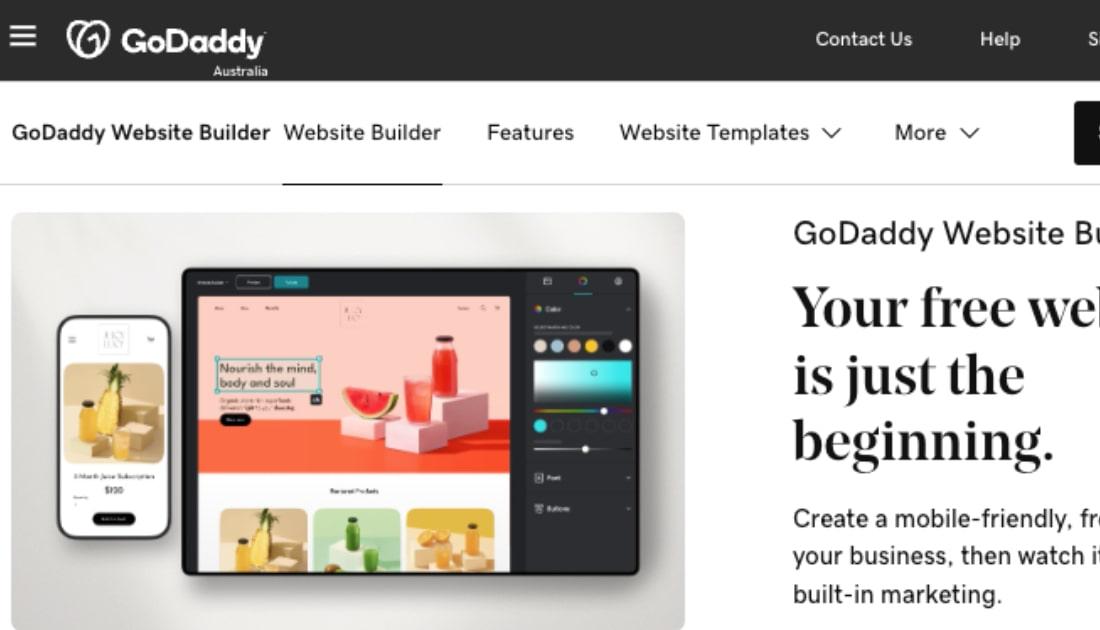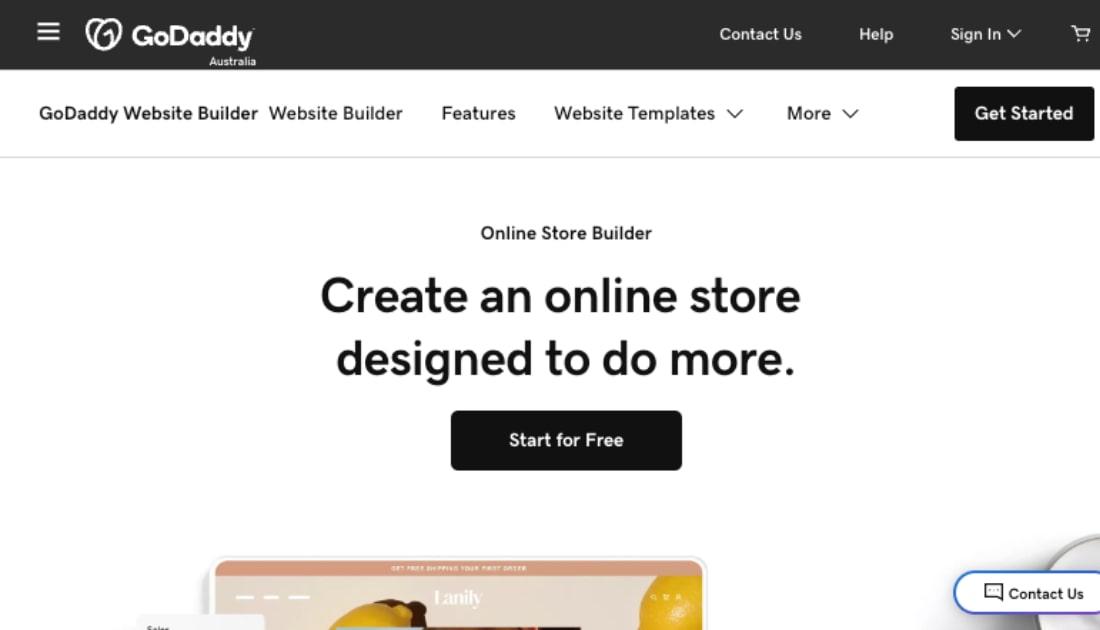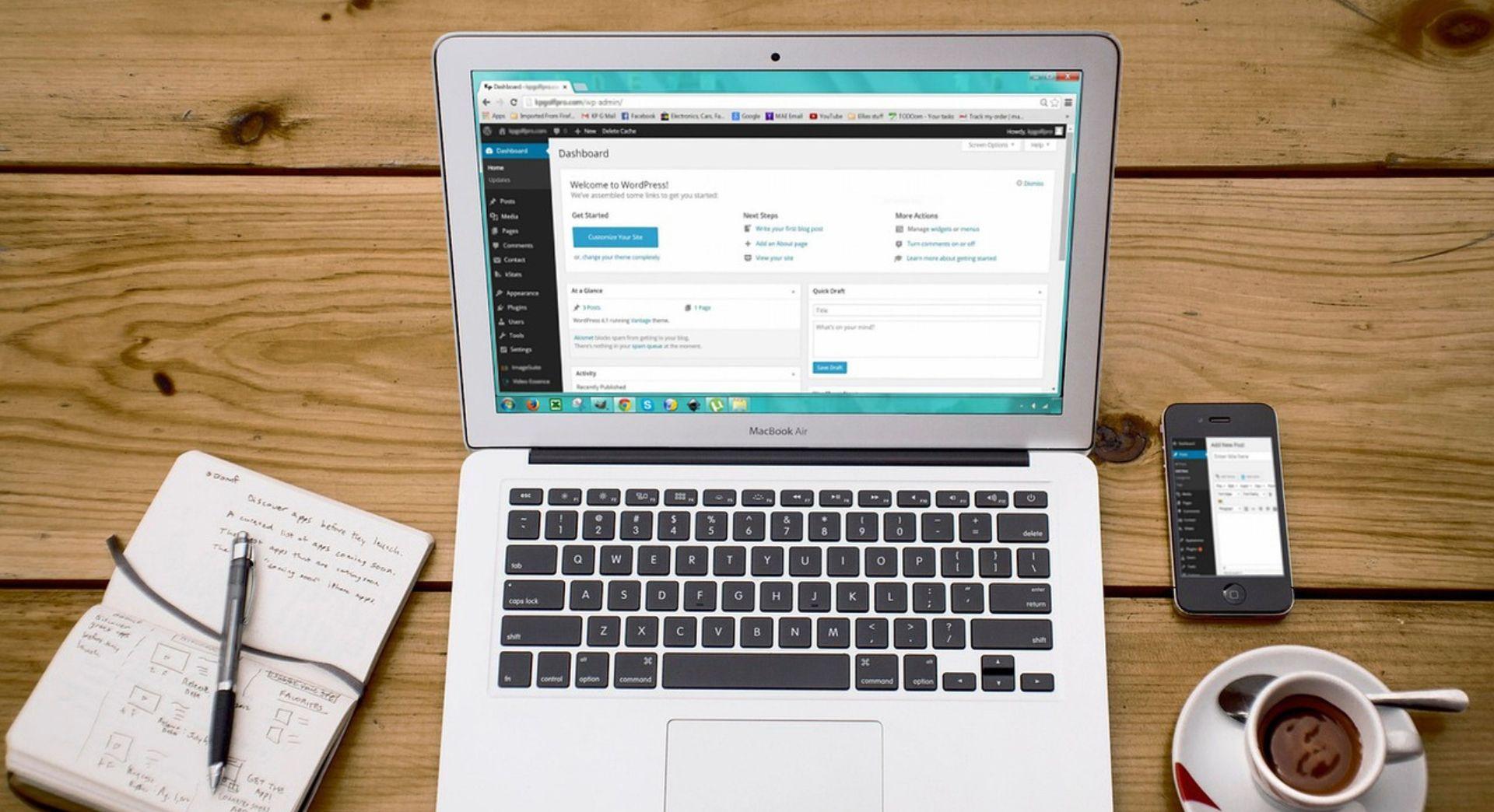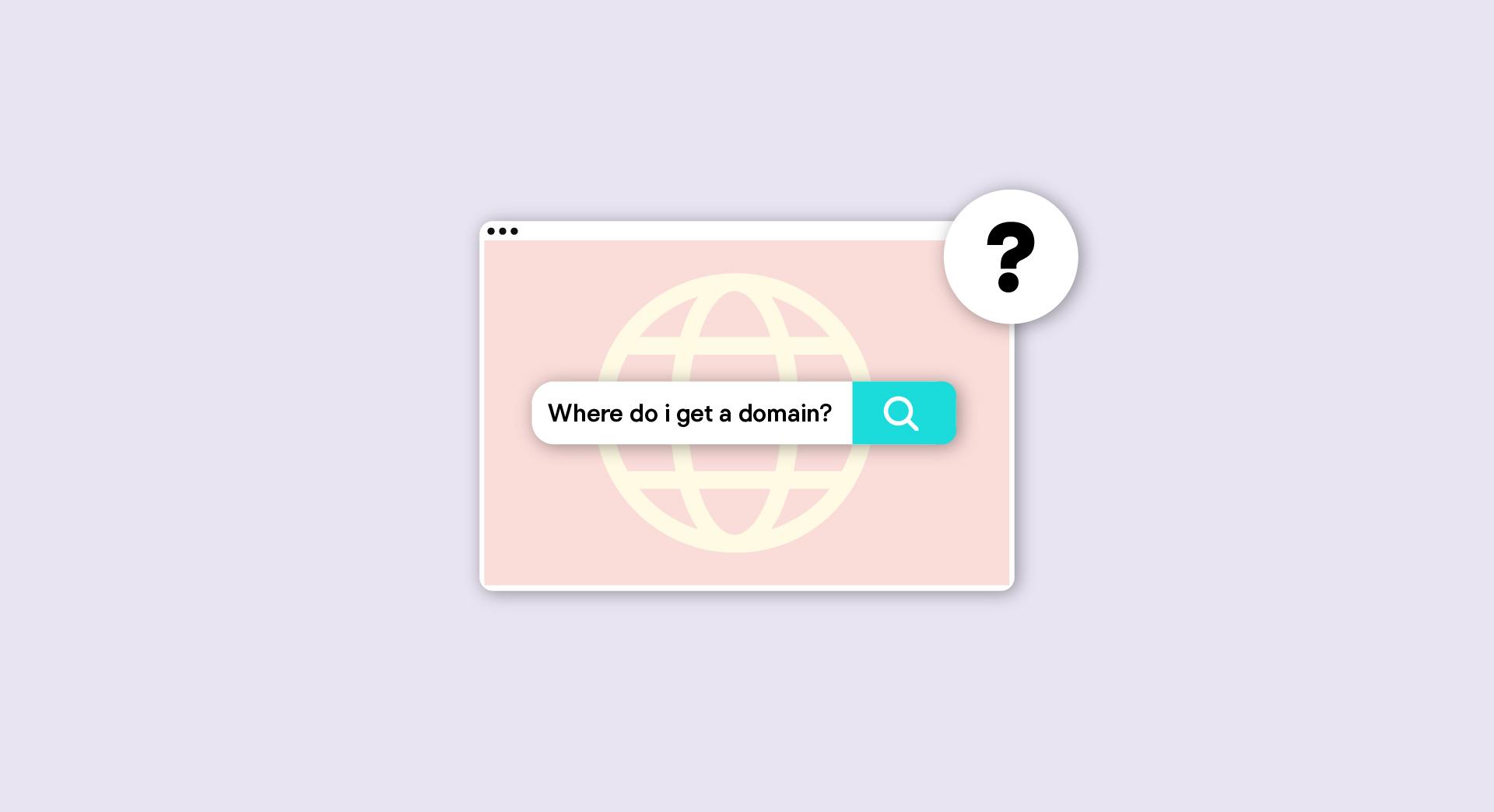Do you have a unique product or service that you would like to offer? Thinking of starting a new online business? Congratulations! Your next move is to do some small business expense planning get a handle on the costs that will go along with your new online enterprise.
Netrepreneurs generally have no problem planning for the staples of phone, internet, utilities, supplies and inventory. It's all the new online-related expenses that many times take them by surprise.
Having helped folks set up their sites for more than two decades, I can share with you that they are always blindsided by expenses. So let's make sure that doesn't happen to you, OK?
Small business expense planning for your website
There are a number of expenses that go hand-in-hand with starting and maintaining a website — the foundation of your online business. Here’s an overview of website-related costs.
Domain
Your domain name will be at the heart of your online brand. Take your time and think carefully before registering. Is your domain easy to remember? Does it reflect your brand's image? Will correct spelling be an issue? Make sure your domain is easy to remember and spell!
Another consideration is a domain privacy service. This service will replace details such as your email address and phone number in the online WHOIS database that includes information about domain registration. This helps to minimize spam and exposure to telemarketers while allowing you to choose what information you want to make public online.

Cost: Varies greatly, depending on registrar, domain name and extension, and available promotions. It’s not unusual to see cheap domains and special offers starting at 99 cents per year. In contrast, a premium domain can cost thousands (even millions). Domain privacy might be included in registration or as an add-on service starting at about $8 per year.
Website hosting
If your website is like the online storefront for your business, website hosting is like the land that store sits on. This is the space on the internet where you place your website’s files. Typically, web hosting runs on a server owned by a web hosting company — your web hosting is just a small section of that server. This is called shared hosting — the most affordable option for most startups.
Because you’re just starting out, you will not have established traffic or known resource levels that have to be considered when choosing a website hosting provider. However, you want to be sure to host with a company that will accommodate you as your site needs grow. Support is crucial.
When investigating web hosts do not make your decision on price alone.
Instead, take the time to review the product offerings and online reviews to make sure that you will have access to the features that you need. Some of the basics include:
- Storage. How much space will you need to store your website’s files? If you think your website will require a lot of storage space — like a large eCommerce site — be sure to check the prospective hosting provider’s fine print with regard to “unlimited” storage.
- Bandwidth. This refers to the amount of data transfer allowed between the web hosting server and your customers’ computers.
- Scalability. Can the hosting server provide more resources in the case of unusually large traffic spikes on your site?
- Reliability. What kind of “uptime” guarantee does the hosting provider offer? Again, read the fine print.
- Security. Safety is paramount when it comes to doing business online. Choose a hosting provider that offers security features such as malware/virus protection.
And did I mention support is crucial?
Some website builders, including GoDaddy’s New Website Builder, include hosting.
If you use WordPress, you'll want to host on some level of Managed WordPress hosting. Managed WordPress hosting offers the configuration, resources and security that having a WordPress website requires. It’s a little more costly but well worth it — especially if you are not a techie.
Cost: About $5 per month and up, depending on the service. Many hosting companies offer discounts if you pay annually. Also, with any annual WordPress Hosting plan from GoDaddy, you can also receive a free domain name.
SSL certificate

Google has made it clear they want websites to have SSL encryption (HTTPS). Payment providers are also requiring secure (HTTPS) connections to use their services. Whether you are doing eCom or not, you'll need to get an SSL certificate in place.
There are several levels of SSL, depending on how many domains you want to secure as well as what level of enhanced trust in your security, identity and warranty that you want to provide. Here are tips for choosing the right SSL certificate for your business.
The SSL market is evolving rapidly towards SSL becoming a standard and customary feature of website hosting.
Cost: Free to $500+ per year
Website platform (theme/design)
Choosing the platform for your site is a personal choice based on your experience and technical ability. It comes down to DIY (do it yourself) vs. DIFM (do it for me). Are you a DIYer or are you more comfortable with a developer creating and maintaining your site? The former is less expensive than the latter.
As mentioned above, DIY choices include website builders such as GoDaddy's new Website Builder (which also includes an Online Store solution and WordPress. Based on your platform of choice, you can choose from many design options to make your website look just the way you want it to.
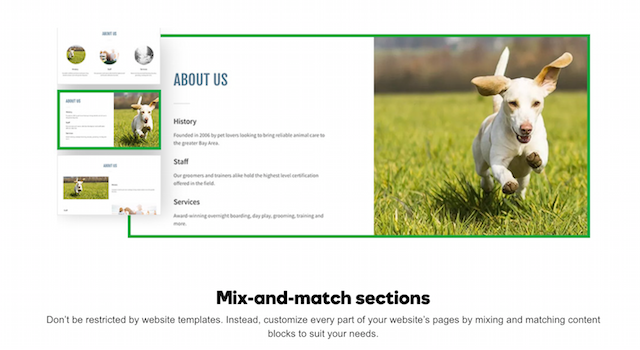
If you’re a fan of WordPress, like I am, you can choose from a plethora of free and premium themes. WordPress themes are designs that you pretty much just have to fill in with your logo and your content.
WordPress is popular, in part, because it provides the ability to manage your site content and layout without having to be a programmer. Plus, plugins enable you to expand the functionality of your website.
If you decide on WordPress, you can purchase a quality premium theme for much less than what a custom website design would cost.
The key is knowing how you want your website to look and how you want to prioritize your content. Themes offer live demos that you can go through page by page so you can envision how your content will display. Take the time to go through the theme demos carefully before making your decision.
Platform cost: Starting at about $5 per month, depending on features included. Some tools offer free trials.
Premium theme cost: Starting at about $20 per theme. Some theme companies offer support for a limited period of time after purchase. When that time frame expires you will have to subscribe to get additional support. Check out available support and/or membership packages before making your purchase.
Custom development / coding / coaching
There may be times when you need a professional developer or coder to tweak or add features to your site. Or, you might just need a little help learning how to integrate a plugin, feature or strategy. This is where a coach would be beneficial. Make sure you detail what you need and that the terms of your partnership are clear and provided to you in writing.
Cost: Starting at about $50 an hour.
Content Delivery Network (CDN)

Does your startup need a Content Delivery Network? Probably not right out of the gate — but as your website traffic increases, you might want to plan on adding a CDN service for “next level” optimization. Especially if you are doing business globally.
CDNs cache your site and then serve it up through the node on the network closest to the visitor to your site. Cost is dependent on the amount of traffic your website receives as well as any additional features you might need (SSL, region reach, security, mobile).
Cost: Starting at about $10 per month.
Email expenses
If you’re going to run a professional business online, you need professional email to garner trust for your venture and to help with your marketing efforts.
Email account hosting
It’s important to use your domain name for email (you@yourdomain.com) so that you can brand your new enterprise with every single email that you send. Some web hosting services include domain email hosting while others do not. If your hosting provider does not offer email hosting, there are several service providers to choose from.
Cost: Starting at about $5 per month.
Email marketing services
Collecting email addresses, and managing subscriptions and unsubscribe requests while creating great looking newsletters can be tedious and time consuming. Not to mention making sure you are in compliance with applicable laws and regulations! Third-party services will not only help you with your email marketing efforts, you'll look professional in the process!
There are providers that offer free accounts but are limited in features, support and number of subscribers and emails you can send. Be sure to read the fine print.
Cost: Starting at about $10 per month.
eCommerce expenses
If you plan to sell products or services online, you’ll likely have a few additional costs to add to your small business expense planning checklist.
eCommerce plugins / extensions
While GoDaddy Online Store and some other eCommerce website builders include all the features you need to start selling online, other platforms do not.
If you use a Content Management System like WordPress, Joomla! or Drupal, you can add eCommerce features and functionality to your site with separate plugins and extensions. My favorite CMS, WordPress, offers plugins and extensions for pretty much anything you want to do.
Detailed planning in regard to how you want your online shop to operate is time well spent.
I work on many WooCommerce WordPress sites, and it is not uncommon to have anywhere from five to 15 plugins related to eCommerce. Some examples of these eCommerce plugins and extensions include:
- payment gateway integration
- points and rewards
- shipment tracking
- product add-ons
Cost: Free to about $250 each
Credit card processing
Payment processors charge monthly and per transaction fees. Fees vary greatly and you have to do your due diligence to determine what company works best for you.
Postage applications
If you are shipping tangible products you'll want to consider a postage application. Being able to do on-site postage purchasing and label creation is a real time-saver. In addition, you can save with the USPS as they offer a discount on your postage purchases by doing so online.
Postage software services have a monthly fee with discounts offered for annual payments.
Cost: Starts at about $10 per month + postage
Labels / packaging materials
You'll need shipping labels and envelopes or boxes to ship your products in. USPS offers Priority shipping boxes and envelopes at no charge. Depending on your products you might also need bubble wrap, packaging tissue or paper.
Keep in mind that how you package your items not only protects the products within but makes a statement about your brand. Presentation is key!
Costs: Labels — about $40 for 200; Bubble wrap — about $16.99 per roll
Marketing expenses
After you get your website up and running, it’s time to start marketing your online business. In addition to the email marketing mentioned above, you might want to invest in search engine marketing, social media management tools, and other solutions to get the word out about your business.
Pay-per-click (PPC) advertising
The reality is that it will take time for your new website to start ranking on search engines. Besides using social media and word-of-mouth to drive traffic to your site, the fastest way to get exposure is to purchase advertising on sites like Google, Bing and Facebook.
The amount you will pay per click is based on how competitive the search term(s) are. The more competitive, the higher the cost. Some highly competitive terms — like “insurance” — are priced at about $55 per click.
PPC advertising allows you to set your monthly budget. When your ad budget is used, the ads stop until your next billing date.
Cost: About $100 to $200 per month to start.
Social media management
There are a bunch of social media management tools to choose from that can help automate tasks and save you time. A few of the most popular solutions include:
- Hootsuite. One of the most useful features of applications like Hootsuite is a single dashboard that lets you view multiple profiles.
- Buffer. Tools including Buffer let you schedule activities like blog posts, and tweets — so your followers get into the habit of engaging on a regular basis.
- SocialOomph. SocialOomph is one of a few tools that keep track of when you appear in social media conversations.
- Audiense. Applications like Audiense give you a robust suite of analytics — giving you insight into areas like key influencers, competitors’ activities and best times to post.
In general, cost is determined by number of social accounts, users and features.
Cost: Starting at about $10 per month.
Business cards / marketing materials
You will be including cards and marketing materials in every package you send and to any person who will listen. Here are tips for designing your own business cards to save on cost.
Cost: About $100 for initial business cards and one high-quality promotional handout to include with orders.
Start your budget
“If you don't know where you are going, you'll end up someplace else.” ~ Yogi Berra
This is a summary of the small business expense planning that will be required to launch your new online venture. Your mileage will vary based on your products, the competitiveness of your market, and the services and providers you choose. What you can count on is that getting your budget “on paper” for your new online business before you dive in will help to increase your potential for success!

